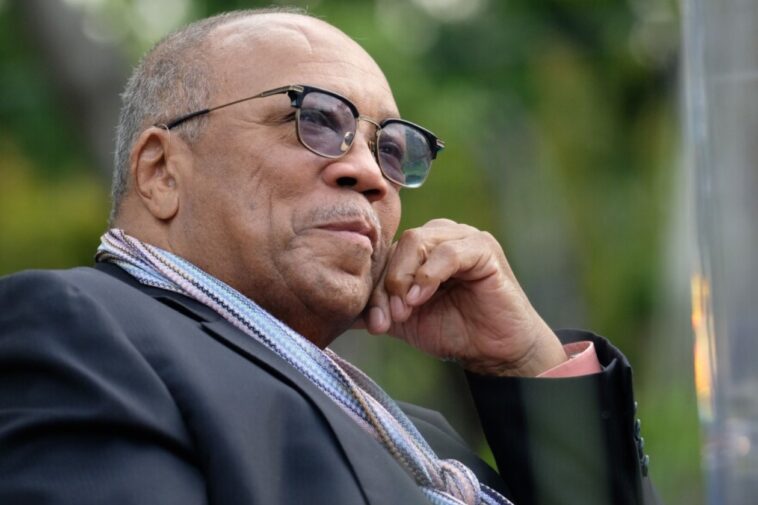Quincy Jones, a very important American music figure, died at 91 years old, but an extraordinary history no one ever had. He was famous for his innovative style, changing jazz, pop, and hip-hop music.
He collaborated with known artists like Frank Sinatra and Michael Jackson, which greatly shaped the music industry. He was a musician as well as a producer, and in total, he had earned 28 Grammys-one of the most awarded people in music history.
The career of Jones was beyond seven decades with all varieties of music yec and regions. He had collaborated with famous artists from Ray Charles to Aretha Franklin, which touched the ears of several generations.
He was able to blend different types of music in his work on Michael Jackson’s Thriller, the best-selling album of all time.
He worked on other superhit films such as The Color Purple and The Italian Job; they were very important for the role of music in films.
Apart from music, Jones was a leader who influenced both the business world and social issues. As one of the first African Americans to become an executive at a big record company, he helped break down industry barriers.
Jones also supported various social causes, including global humanitarian efforts and assisting young musicians. He will be remembered as a shining example of musical skill and charitable work.
The Global Impact of a Musical Pioneer
Jones emerged within a year in a Chicago neighbourhood, born in the year 1933, becoming one of the most notable names in music history. His fame resulted from a friendship in Bremerton, Washington, with Ray Charles, who inspired him to become a musician.
Jones became renowned for the trumpet style he developed during his study at Berklee, thus embarking on tours as a trumpet player and arranger with Lionel Hampton, and quickly became well-liked as an excellent trumpet player and an arranger.
The Jones created decades of feature film-scoring history and success in the 1960s, especially in films called The Pawnbroker and In the Heat of the Night.
His indisposition to synthesize timbered him to engage in projects running across pop-jazz-African and Brazilian music. He refined work on the production of the charity song with Famine that featured called We Are the World.
During the 1970s, Jones had health problems, but a little later, he recovered and formed Qwest Records by recruiting many who would come to become strong artists.
His record label took a shift towards jazz, and this genre of music played a major role in jazz-funk, thus Jones got one back among many. Showing genuine love and respect for his music from the jazz clubs to the stages of the world.
A Legacy That Transcends Music
Quincy Jones’ reach was not confined to sound only, he was also actively engaged in moulding the cultural setting. Productions like The Fresh Prince of Bel-Air and Roots would go on to set the very limits of the way television was allowed to display black people and other minorities.
He was a recipient of the Jean Hersholt Humanitarian Award in recognition of his humanitarian work, thus reinforcing his status as an activist and cultural figure.
Quincy Jones, a synonym for music and awards, has set a record with 80 Grammy nominations – one record far out that was a testimony of his creativity.
He is also inducted into the Rock and Roll Hall of Fame, and on the other hand, Jones is also Honored by his colleagues such as Barrack Obama. Records of Jones that have been set in Music, Films and Television remain even today, Encouraging artists all over the globe.
These last years of Jones’ life were filled with award after award in music, art, and even film. He is no longer with us; and that part is gone with him.
His legacy will live on, with the hope that it will touch many reaching even in a hundred years. Music may change almost every day, but the relevance of Quincy Jones will remain forever.




GIPHY App Key not set. Please check settings